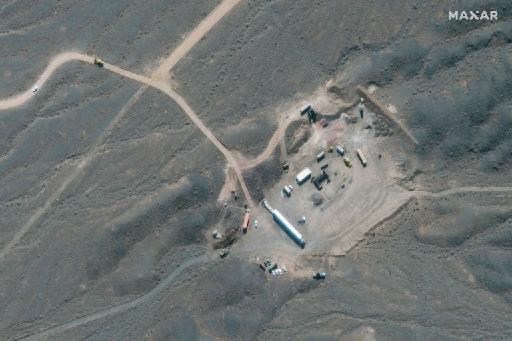The first round of indirect talks between the US and Iran regarding the nuclear agreement ended last week. The talks were brokered by Europe and are held in Vienna. The Biden administration made it clear before even entering the White House that it planned to return to the nuclear agreement, and was willing to compromise by lifting sanctions and taking other economic measures to bring the Iranians back into the agreement.
The EU which has an interest in having the US-led sanctions lifted to remove obstacles to trade with Iran, are also advocating compromise, even though Iran has not moderated its standpoints regarding its nuclear program or ballistic missile programs or changed its disposition in the Middle East.
The Iranians welcome the progress that has been made in the talks so far, and President Rouhani has referred to them as a new achievement for Iran. The US has tried to play down Iran's achievements, emphasizing that there is still a long way to go before it returns to the agreement. A senior member of the U.S. State Department said that Iran had demonstrated serious intentions, but if it continued to insist on all the sanctions being lifted at once, the negotiations would hit a brick wall.
So far, the talks have not generated any achievements for the Western countries, nervous of Iran's nuclear and ballistic programs and its destabilizing activities in Europe and the Middle East.
Iran has wasted no time in activating a new generation of centrifuges - another violation of the nuclear agreement. Its aim is to strengthen its position in the talks and to humiliate the U.S. and Europe, which are not even considering withdrawing from the talks in protest of this serious violation.
Following the explosion at the Iranian nuclear facility of Natanz, Iranian officials have brazenly declared their intent on enriching uranium to 60% purity, inching them ever so closely towards the 90% purity levels required for weapons-grade capabilities. The impact of this move on the ongoing negotiation efforts is clear; with Washington so eager to revive the JCPoA, Teheran is bolstering its position any way it can to gain maximum leverage in the ongoing negotiations.
Different approaches to negotiations
We need to understand that Iran's approach to negotiations is different from ours. As a skilled market trader, it does not share the Western tradition of compromise and has zero interest in a win-win situation, accepting nothing less than a result that meets all its demands. Iran is acting as if it holds all the cards, even though in practice, it is actually at a disadvantage.
The US and Europe, who really do hold all the cards, are acting as if they are empty-handed and have no chance of emerging successful from the talks. This is a disastrous negotiating strategy that leaves very little room for any concrete compromises surrounding Iran’s return to the JCPOA either before or after the lifting of sanctions.
Why hand the Iranian regime a free achievement in the run-up to the elections in June for president of the Islamic Republic? Why not wait until we know who is elected? Why not ramp up the economic pressure on Iran even further? Why be the passive partner in the negotiations?
There is no doubt that if the talks continue as they have gone so far, Iran, which keeps ratcheting up the pressure on the US and Europe, will soon carry out further violations of the nuclear agreement, in order to exert further concessions.
In the absence of any concern regarding a US or European response to its actions or withdrawal from the talks, Iran might seize the opportunity to carry out assassinations of regime dissidents on European soil, thus humiliating Europe even further. Iran clearly understands the West's keen desire to reach an agreement, and interprets its failure to respond to Iranian violations as a sign of profound Western weakness.
In the hiatus between the first and second rounds of talks, we must ask ourselves whether Europe's situation vis-à-vis Iran has been improved by the JCPoA.
Looking at it from a six-year perspective, the answer would appear to be no. Iran has continued to develop missiles with even longer range, stepped up its distribution of weapons to its proxy forces in the region, and made unprecedented use of these weapons. Even if we sell Iran dozens of Airbuses and leading European companies resume trade with their Iranian counterparts, this will not make Iran more moderate.
As Europeans, we are responsible for the security of subsequent generations. We must insist on an agreement that meets our security needs and addresses our real interests of preventing Iran from acquiring nuclear weapons while curbing its aggression. If we accept a deal that does no more than enable us to do business with the Iranian regime - whose morals are entirely inconsistent with our own principles of honouring human rights, the rule of law, and individual liberties - then we will only lose out in the long term.
By Sofi Heikkinen

